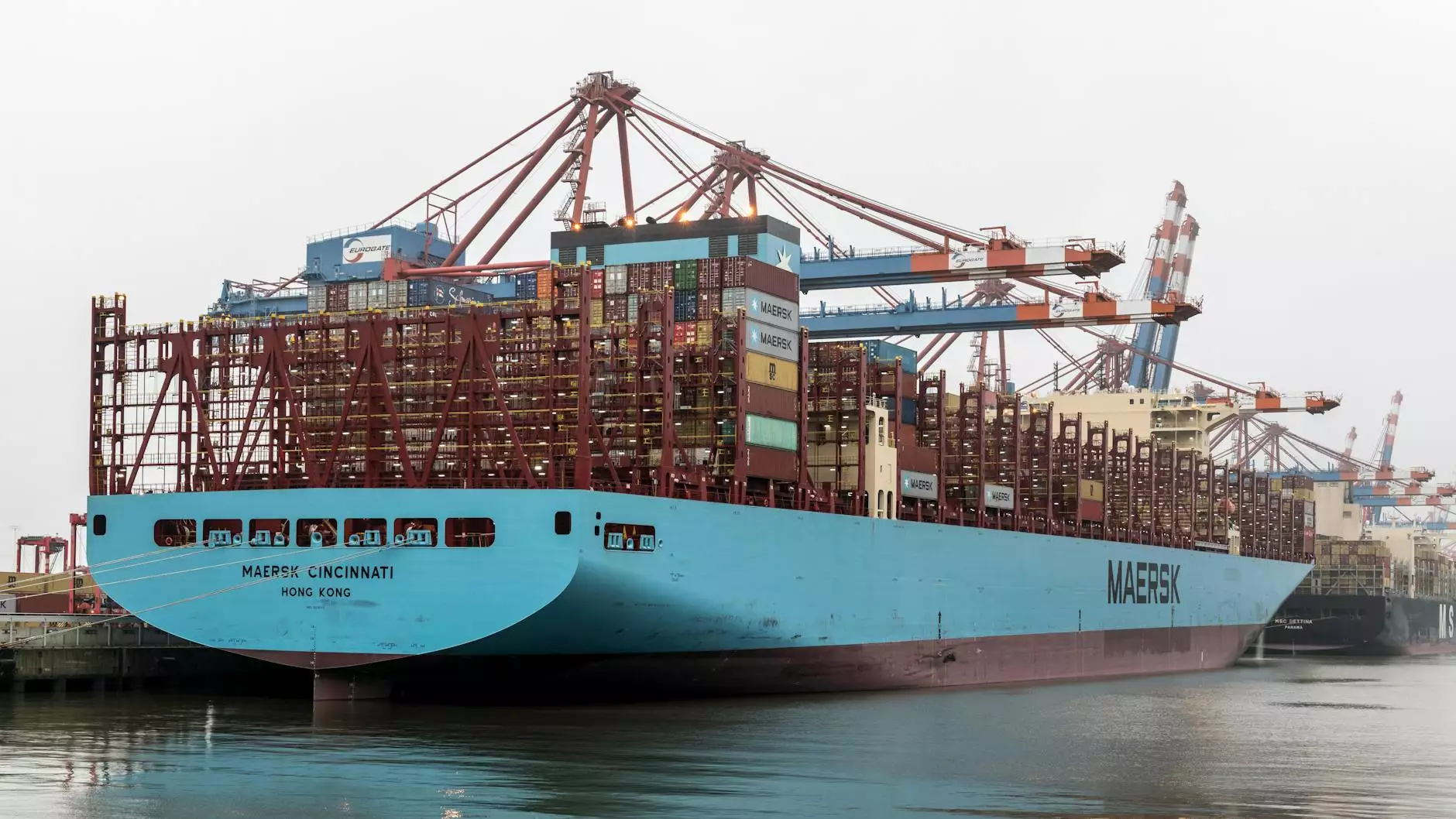Unlocking Efficient Logistics: Your Essential Guide to Freight Delivery Quotes

In today's fast-paced business environment, understanding freight delivery quotes is crucial for optimizing operations and enhancing productivity. Whether you’re a small business owner or part of a large corporation, knowing how to navigate the intricacies of freight shipping can lead to improved logistics and significant savings. This article delves deep into the world of freight delivery quotes, providing you with all the necessary insights to make informed decisions for your business.
What are Freight Delivery Quotes?
Freight delivery quotes are estimates provided by shipping companies that outline the costs associated with transporting goods from one location to another. These quotes take into consideration various factors that influence shipping rates, including:
- Distance: The more miles your freight travels, the higher the costs.
- Weight and Dimensions: Heavier and bulkier shipments often incur higher fees.
- Type of Freight: Different goods may have specific handling needs, affecting overall costs.
- Shipping Method: Air freight is generally more expensive than ground freight.
- Time-Sensitivity: Expedited shipping will typically cost more.
The Importance of Accurate Freight Delivery Quotes
Having accurate freight delivery quotes is essential for several reasons:
1. Budgeting and Financial Planning
Businesses rely on accurate quotes to forecast logistics expenses and manage budgets effectively. Underestimating shipping costs can lead to financial strain, whereas overestimating can result in lost business opportunities.
2. Choosing the Right Shipping Partner
Quotes help businesses compare different shipping providers, allowing you to select a partner that offers the best balance between cost and service quality. This is particularly important in today’s competitive market.
3. Enhancing Customer Satisfaction
When you provide your customers with accurate shipping costs upfront, it builds trust and enhances their overall experience. Customers appreciate transparency, and clear quotes minimize confusion during the ordering process.
How to Obtain Freight Delivery Quotes
Obtaining freight delivery quotes can be done through various methods:
1. Online Freight Marketplaces
Many businesses now turn to online platforms where they can input their shipment details and receive multiple quotes from different carriers. Websites like FreightRate.com streamline this process, allowing you to easily compare options.
2. Directly Contacting Carriers
You can also reach out to freight carriers directly for quotes. This method sometimes offers better rates but may require more time and effort.
3. Freight Brokers
Hiring a freight broker can be invaluable, especially for businesses new to shipping. Brokers already have established relationships with carriers and can negotiate better rates on your behalf.
Factors Influencing Freight Delivery Costs
The costs associated with freight delivery can vary widely based on numerous factors:
1. Location
The origin and destination of your shipment are primary determinants of freight rates. Remote areas may incur higher costs due to limited carrier availability.
2. Shipping Mode
Your choice of shipping mode—be it trucking, air freight, rail, or ocean—will significantly impact overall costs. Air freight is fastest but comes at a premium, while ocean freight is economical for large shipments but slower.
3. Load Type
Shipments classified as Less Than Truckload (LTL) or Full Truckload (FTL) will have different pricing structures. Understanding these classifications aids in getting accurate quotes.
4. Seasonal Demand
Shipping costs can vary based on seasonal demand fluctuations. During peak seasons, such as holidays, freight rates often increase due to high demand.
Best Practices for Obtaining Reliable Quotes
To ensure you are getting the most reliable and accurate freight delivery quotes, follow these best practices:
1. Provide Detailed Information
When requesting quotes, be sure to provide comprehensive details, including:
- Type and description of goods
- Exact weight and dimensions
- Pickup and delivery locations
- Preferred shipping dates
- Any special requirements (e.g., refrigeration, hazardous materials)
2. Compare Multiple Quotes
Never settle for the first quote you receive. Comparing at least three to five different quotes can give you a clear picture of the market rates and help you make informed decisions.
3. Review Carrier Reputation
The cheapest option may not always be the best choice. Research carrier reviews and ratings to ensure reliability and good service quality.
Understanding Shipping Centers
Shipping centers play a critical role in the logistics chain by serving as hubs for both inbound and outbound freight. Let's explore their significance:
1. Consolidation of Shipments
Shipping centers can consolidate freight from multiple businesses, allowing for more efficient transportation. This consolidation often leads to reduced costs and quicker shipping times.
2. Cross-Docking Services
Cross-docking involves unloading goods from incoming trucks and loading them directly onto outbound ones. This method minimizes handling time and decreases storage costs.
3. Specialized Services
Many shipping centers offer specialized services such as temperature-controlled storage for perishables, customs brokerage for international shipments, and hazardous materials handling. This versatility can significantly benefit businesses with specific shipping needs.
Business Consulting for Logistics Optimization
Engaging in logistics consulting can provide invaluable insights into your shipping practices. Here are some key benefits:
1. Process Improvement
Consultants analyze current shipping processes to identify inefficiencies and recommend improvements. Optimized processes can lead to reduced shipping costs and faster delivery times.
2. Technology Integration
Consultants can help integrate technology solutions such as transportation management systems (TMS) that automate and streamline shipping operations.
3. Risk Management
Consulting services can also assist in developing risk management strategies to mitigate issues such as delays, damage, or lost shipments.
Vehicle Shipping: Key Considerations
For businesses in the automotive or other related sectors, understanding vehicle shipping is essential. Here are some considerations:
1. Shipping Methods for Vehicles
Vehicles can be transported using several methods, including:
- Open Transport: Most economical but exposes vehicles to the elements.
- Enclosed Transport: Provides better protection but comes at a higher cost.
2. Preparing Your Vehicle for Transport
Before shipping a vehicle, ensure it is prepared correctly:
- Clean the vehicle for a proper inspection.
- Document all existing damages.
- Remove personal items.
- Ensure fluids are topped off.
3. Understanding Costs
Vehicle shipping costs are influenced by factors such as:
- Distance
- Type of transportation chosen
- Vehicle size and weight
Conclusion: Navigating the World of Freight Delivery Quotes
Mastering freight delivery quotes is essential for any business looking to streamline its shipping operations. By understanding how quotes are generated, the factors that influence costs, and optimizing logistics through effective practices, businesses can achieve a competitive advantage. Whether you're working with shipping centers, engaging business consultants, or handling vehicle shipping, arming yourself with knowledge will only add to your success in the marketplace.
For comprehensive support and tailored solutions, visit FreightRate.com today and take your logistics to the next level.



